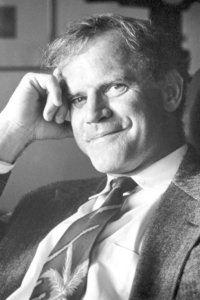Remembering Kary Mullis, Pioneer of PCR
“I thought to myself, ‘This is going to make me a famous guy, if it works,’” said Kary Mullis, the inventor of PCR. The American biochemist and Nobel Laureate died on August 7, 2019 at age 74.
Dr. Mullis’s groundbreaking invention of polymerase chain reaction (PCR)—a concept that famously came to him while he was cruising a California highway—laid the foundation for countless advances in microbiology, including the syndromic infectious disease diagnostics we do here at BioFire.
The invention of PCR was so revolutionary because the technique makes it possible to easily and rapidly make millions of copies of a specific DNA segment. Using heat and the enzyme DNA polymerase, a single strand of DNA can be amplified to the requisite quantities for analysis or experimentation.
Thanks to the work of Dr. Mullis, the BioFire® FilmArray® System uses multiplex PCR to rapidly isolate, amplify, and detect the nucleic acid of targeted pathogens and antibiotic resistance markers in a patient sample. It is a fast, accurate, and comprehensive diagnostic method that is more sensitive than culture and more efficient than a tall order of individual tests.



